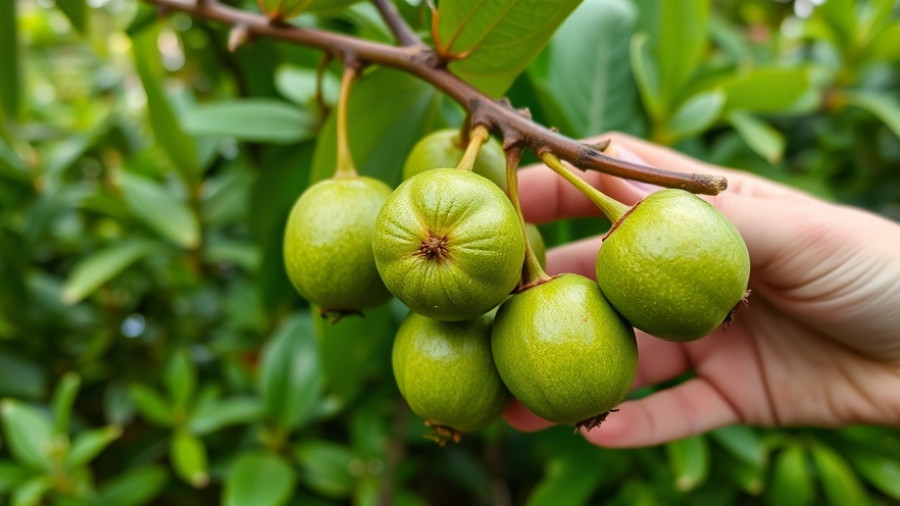
Discovering the Rich Potential of Haematocarpus Validus
The tropical plant Haematocarpus validus, often called blood fruit, has emerged as a focal point in discussions about sustainable agriculture and nutrition. This underutilized species is not only rich in vital nutrients but also demonstrates remarkable adaptability to environmentally challenging conditions.
Nutritional Values and Health Benefits
Research highlights that Haematocarpus validus is laden with essential vitamins, minerals, and unique compounds beneficial for human health. The fruit has shown promising anti-inflammatory and antioxidant properties. In particular, quinic acid, a predominant component, has been correlated with various health benefits, including protection against hepatic disorders and potential anti-cancer properties.
A Sustainable Solution to Global Challenges
In an era plagued by soil degradation and climate change, cultivating Haematocarpus could offer a sustainable agricultural solution. Experts recommend its integration into existing food systems as a way to bolster biodiversity and enhance food security, particularly in vulnerable regions.
Encouraging Biodiversity through Ethnobotany
Traditionally used by various ethnic groups in Asia for health and nutrition, the plant's cultural significance is invaluable. Its introduction into contemporary dietary practices could help preserve traditional knowledge while enhancing the diversity of our diets.
Future Trends: Sustainable Cultivation Practices
The future of Haematocarpus cultivation hinges not only on scientific research but also on sustainable farming practices. Promoting local farming of this species can assist in the shift toward environmentally friendly cultivation methods, which is critical in the face of rising agricultural demands.
Conclusion: Embracing the “Blood Fruit” in Our Diet
The multifaceted benefits of Haematocarpus validus are becoming increasingly clear, from its rich nutritional profile to its potential role in sustainable agriculture. As we explore eco-friendly agricultural solutions, this blood fruit may not only improve health outcomes but also encourage practices that support biodiversity.
Join the Movement for Sustainable Eating
As we continue to seek innovative health solutions and sustainable practices, consider integrating Haematocarpus into your diet. By doing so, you contribute to a healthier planet and support the rich traditions surrounding this extraordinary plant.
 Add Row
Add Row  Add
Add 




Write A Comment